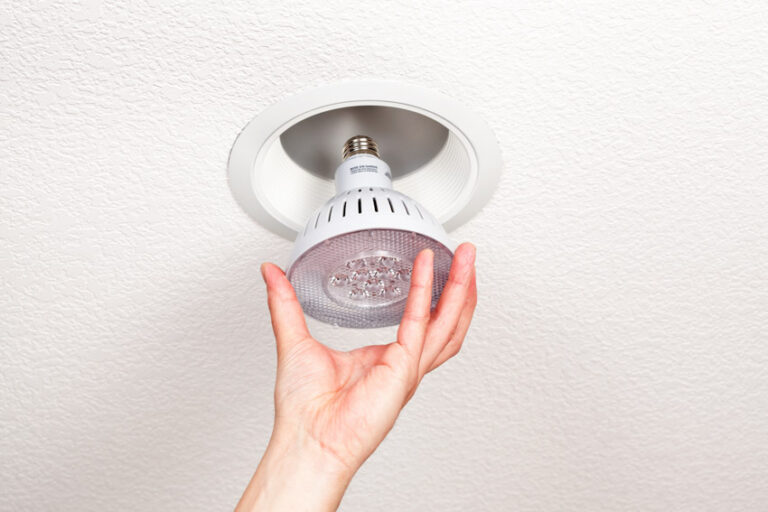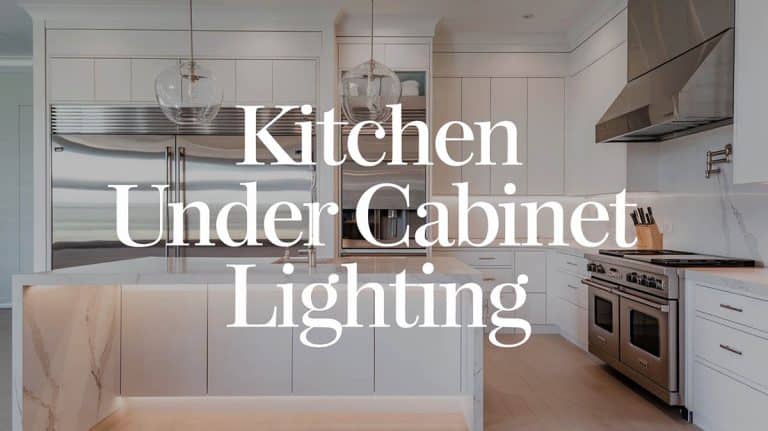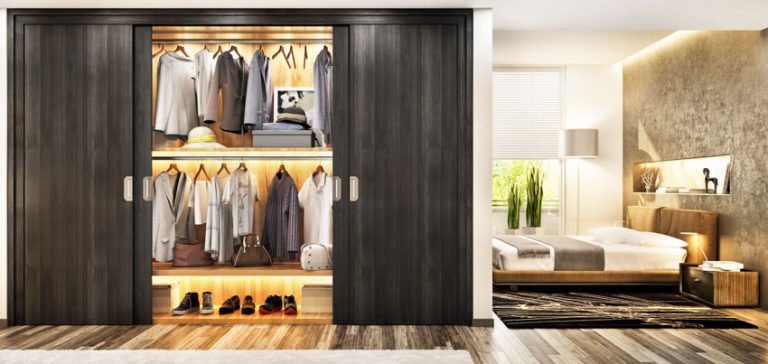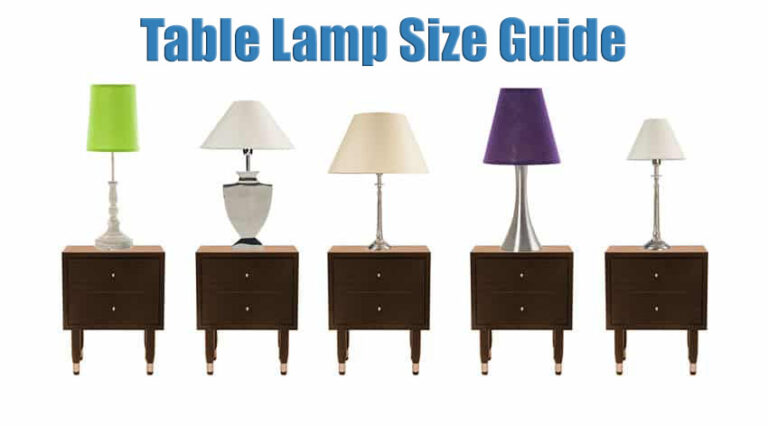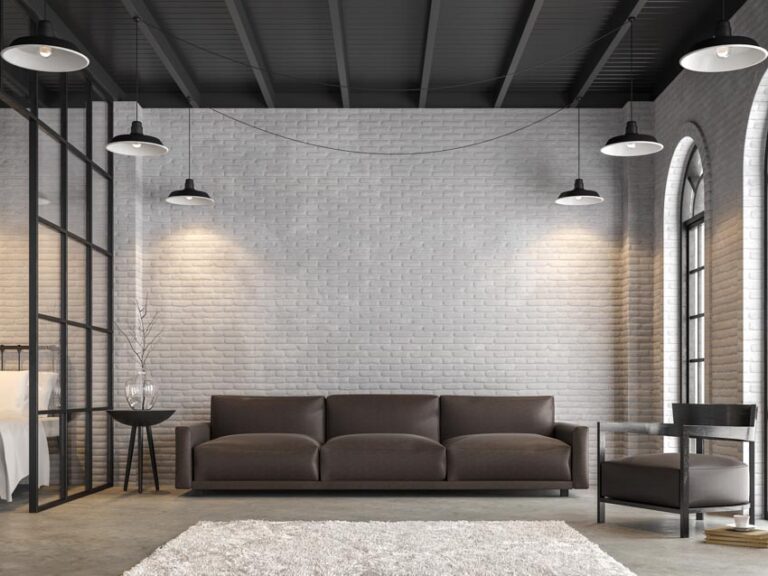18 Types Of Floor Lamps (Design Guide)
A floor lamp is an independent tall lamp with a base that stands on the ground and a pole that contains one or more light sources at or close to the top. You can typically find this kind of lamp in a living area, workplace, or bedroom. There are many types of floor lamps depending on your needs and room design.
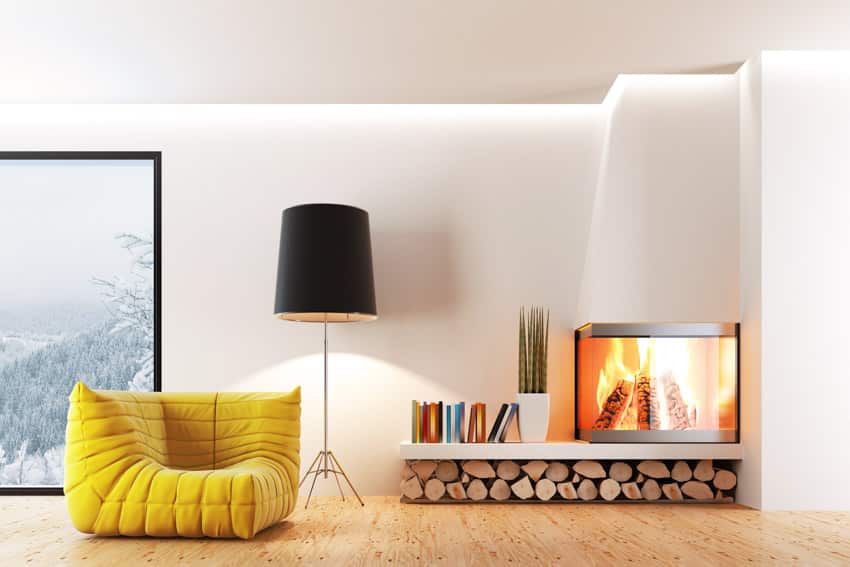
These lights could also bring far more than illumination to your room. Depending on the style of the lamp and the components used, you can significantly impact the general appearance of your space. Moreover, the lamp’s position can alter the mood of any room in which it is placed.
Each style of floor lamp is intended for a certain purpose, such as task lighting or increasing the quantity of illuminance in a space. Certain lamps contain several light outputs, enabling you to distribute light to various areas of your interior space.
In this article, we will discuss the different types of floor lamps and how to select the best options for your needs.
Club Lamp
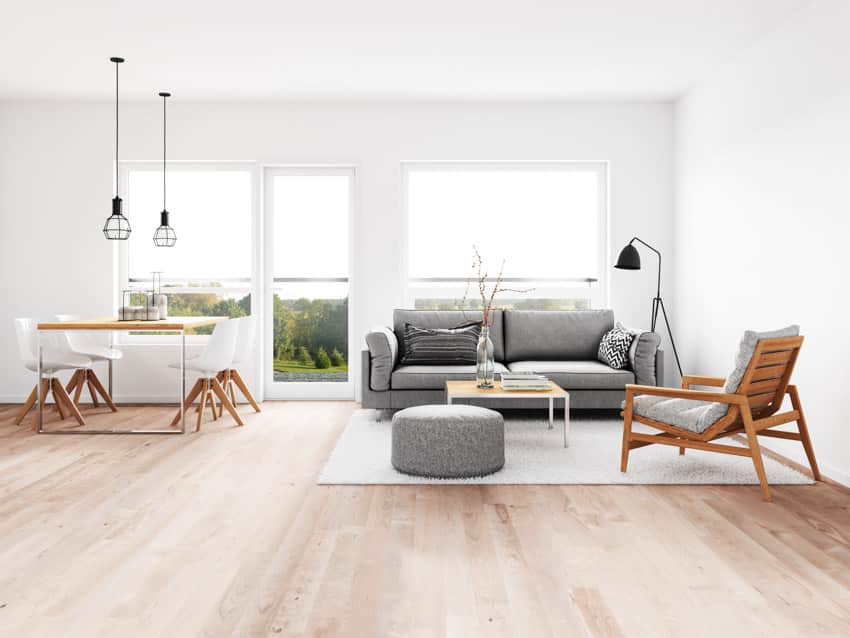
The appearance of a club lamp is minimalist but elegant. A high standing pole in the center supports one bulb with a bell shade. This kind of bulb is ideal for illuminating a large space.
The club lamp’s shade is designed to focus light downward and outward, creating a broad sphere of brilliant light in one place.
A regular or typical floor light is another name for a club lamp. It is normally a thin column with a light above it.
Certain club lights have a stylish column, whereas others have a single, conventional pole that connects to a standard lampshade on top of the lamp.
Furthermore, this kind of floor lamp is very adaptable. A club lamp can be made to match almost every design aesthetic by using various materials and types of lamp shades.
If you prefer a lamp that can provide a lot of light while being discreet in design, this might very well be the lamp that will suit your preferences.
Torchiere Lamp
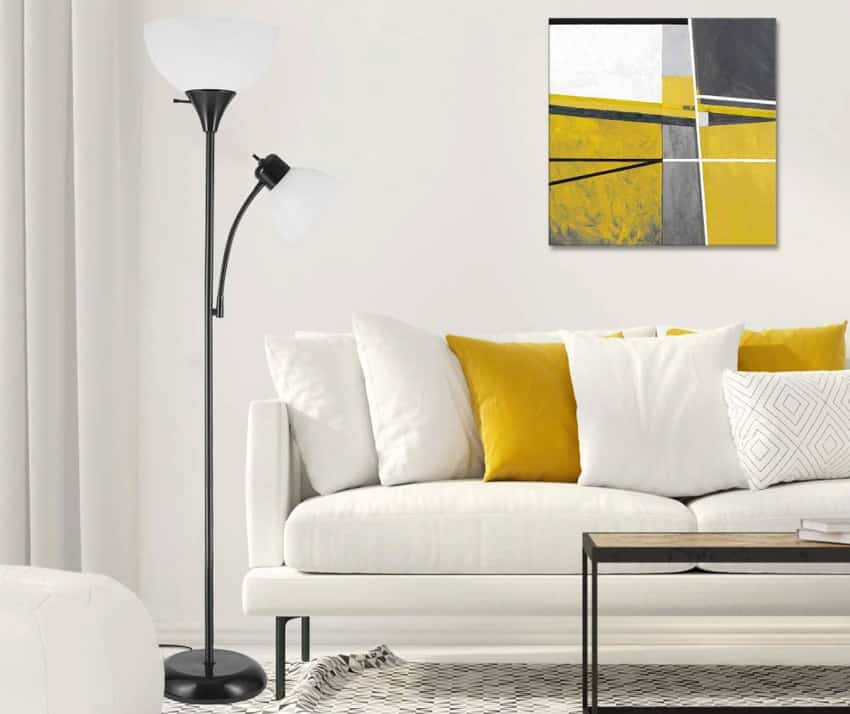
A torchiere lamp resembles a club lamp. It features a sturdy foundation and a tall pole with one light output. Conversely, the torchiere distributes light up, while the club style has a shade that transmits light downward.
This minimalistic design blends into the backdrop while delivering pleasant ambient lighting. The tilted shade directs light to the ceiling, which reflects it into the room.
These lamps are susceptible to tipping since the top is pointed upright, and the shade is usually made of steel or glass. Ensure the lamp’s base is sturdy and durable to prevent it from falling due to bumps and wiggles.
If it is not fully sturdy but you still want to buy it, consider putting it in a corner or another out-of-the-way location to keep it protected. Torchieres, on the contrary, are poor alternatives for task lighting.
Task Lamp
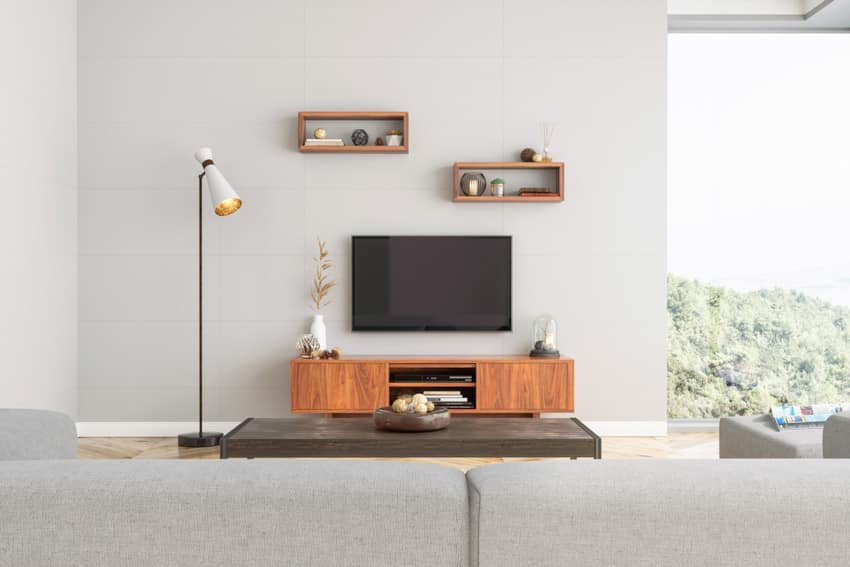
A task floor lamp often includes an adjustable standing light that you can adjust and aim toward the book you are reading or your working table. Furthermore, they are frequently known as a down-bridge lamp.
The primary distinction between these two is that a down-bridge lamp distributes light downward without an adjustable light.
Candelabra Lamp
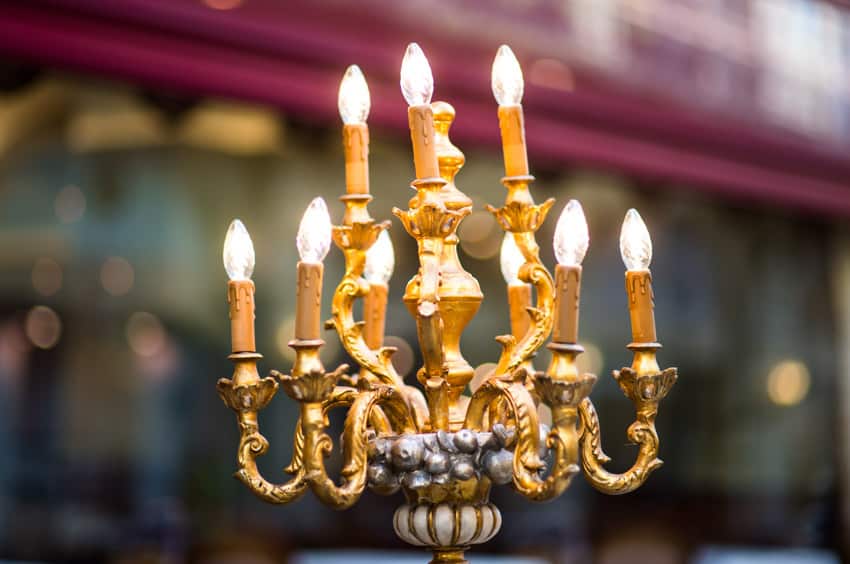
A candelabra lamp, which features various light bulbs, is similar to a multi-way design.
However, the bulbs in a candelabra lamp are typically smaller than those in regular multi-way lights. Moreover, these designs frequently resemble the electric counterparts of classic candelabras.
Indeed, you can consider a candelabra if you want something more exquisite than the types previously mentioned. Chandelier crystal ornaments or shades composed of organza or some light-reflecting materials are used in these floor lamps.
These freestanding fixtures could be embellished masterpieces, but they can also be standard industrial-type lamps with a single uncovered bulb. The bulb, on the other hand, is a distinguishing element of a candelabra design. They employ types of light bulbs that look like candle fire.
Aside from that, it is crucial to consider the pricing and accessibility of bulb replacements when buying a candelabra style product.
Overarching Lamp
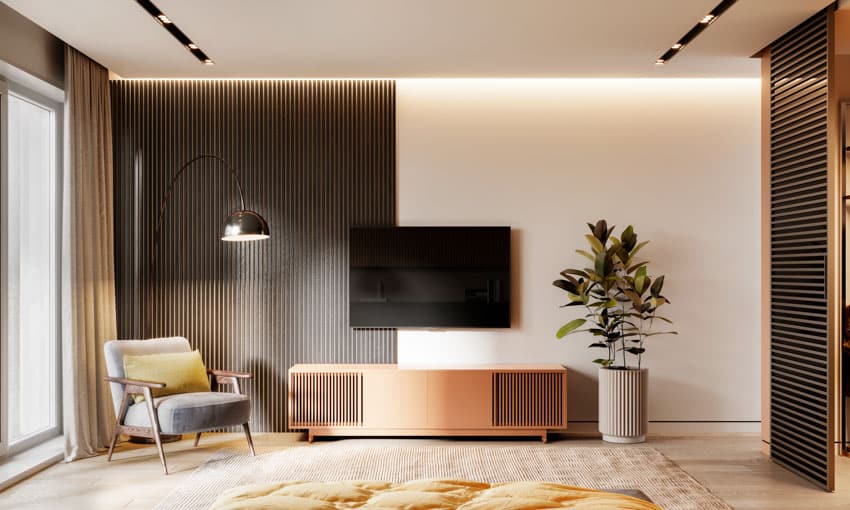
An overarching floor lamp has a lengthy arm that connects to the lamp’s base. The lamp’s extended arm enables it to reach out and over a piece of furniture. If you are looking for a fixture that will give you much-needed lighting assistance while you are working, this type could be the smartest option.
Overarching floor lamps are often highly striking and are an excellent technique to illuminate a whole lounge area, including a couch. You can also place it above a dining table rather than using a chandelier or ceiling light to illuminate the table.
This type is comparable to a down-bridge lamp as they both provide concentrated light. While the down-bridge has an arm that extends from the primary pole and carries the source of light, the central pole of an overarching design reaches up and arches over to dangle over a chair or workstation.
Tower Lamp
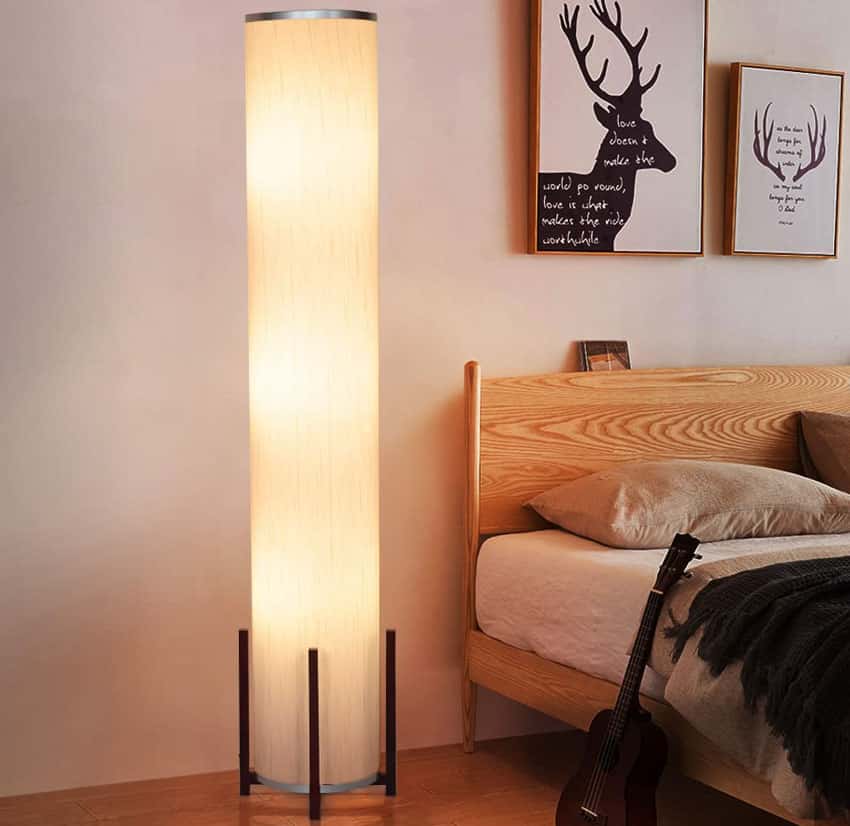
A tower lamp is an excellent option for ambient lighting. These creatively designed lamps provide mellow, delicate illumination that might make it hard to clearly see if you wish to do anything like reading. However, they seem useful for letting you see the object your child has dropped on the ground.
As its extra advantage, a tower light fixture could be a lovely aesthetic contribution to your room’s décor when not being used. Aside from that, tower lamps are available in many designs, ranging from oriental paper lanterns to elegant modern designs. Their designs frequently have a wireframe covered in wrapping paper or a thin cloth.
Tree Lamp
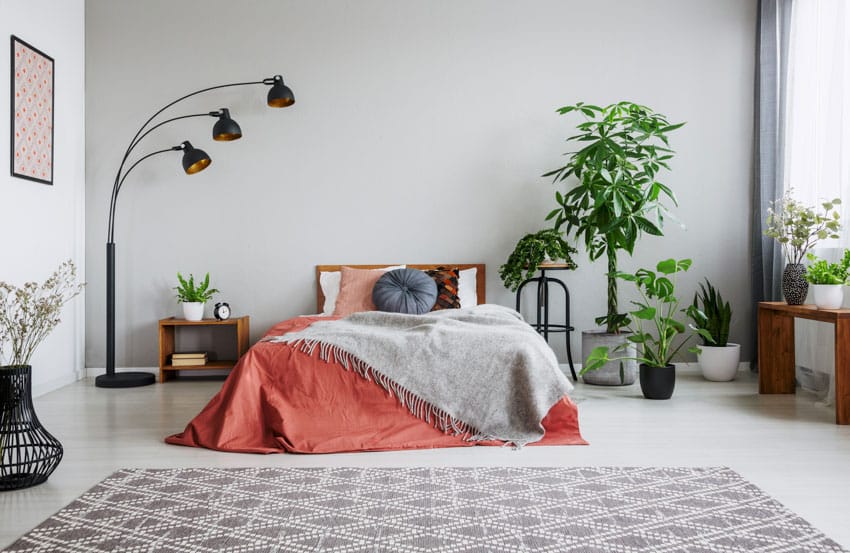
A tree lamp is a type with several light outlets that stretch from one pole. They can all be mounted straight to the middle pole like the light above.
On the other hand, tree lamps can borrow from overarching and down-bridge designs by extending arms from the middle pole. Depending on the type of illumination you would like in your space, the light shades might range from club lighting to torchiere.
Moreover, these lights are an excellent approach to effortlessly altering the lighting in a particular space.
Numerous tree lamps enable you to flex and bend the lights to guide them wherever you want them to go precisely. This enables you to have targeted illumination, ambient lighting, or broad lighting as necessary.
Swing Arm lamp
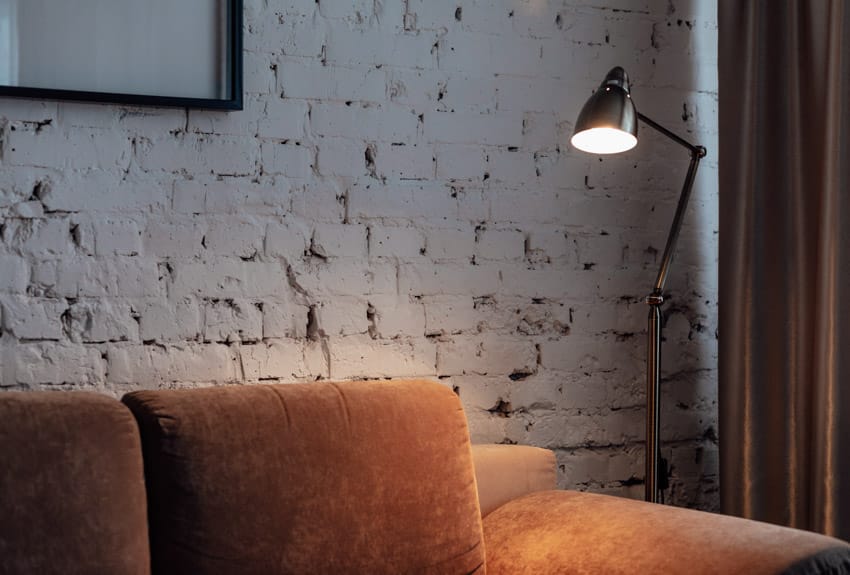
A swing-arm floor lamp lets you modify the lamp’s placement based on your specific illumination preferences. Should you want to illuminate a certain spot, you can simply adjust the arm rather than lifting and moving the full lamp inconveniently.
Additionally, a swing-arm floor lamp outperforms a conventional one in that you can move the arm to aim the light at the angle you choose. This makes it an excellent alternative for keen readers looking for more light at night.
With so many styles, you will discover the perfect swing-arm floor light stand to enhance your décor. Classical and modern styles are obtainable, offering different looks.
Novelty Lamp
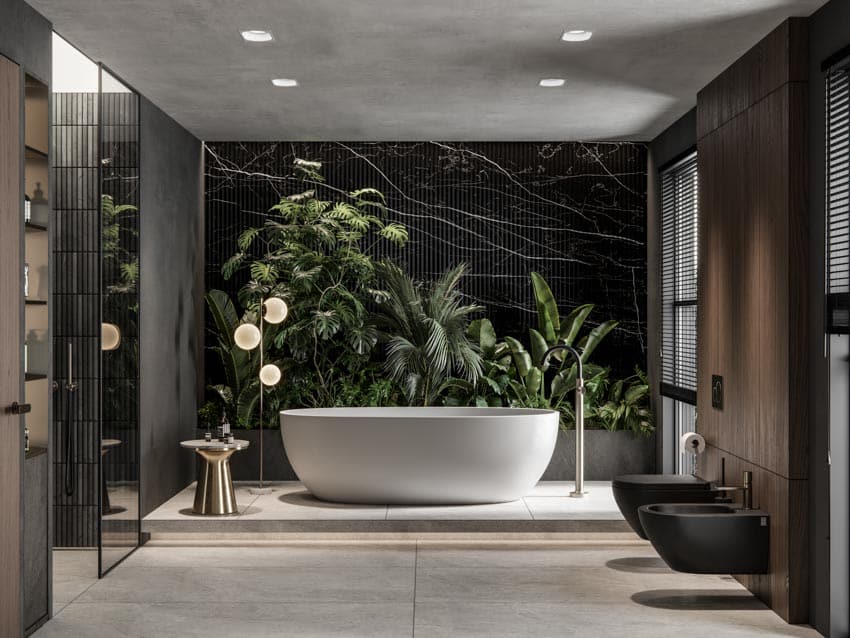
A novelty floor lamp could be any type with a state-of-the-art or distinctive design. These often feature unique, unusual, or themed designs, making them stand out as a focal point or act as a conversation piece.
Any spectacular or custom design can fall into this category. They can feature anything from animal designs to elements including references to pop culture, abstract art, and whimsical or fantastical pieces. While they provide light, this is often secondary to the lamp’s decorative appeal.
For instance, one version of novelty floor light transforms into a cleaner, allowing you to keep your floors spotless and shiny. In short, any freestanding lighting fixture with an extremely unique appearance and functionality can be called a novelty design.
Lamp Styles
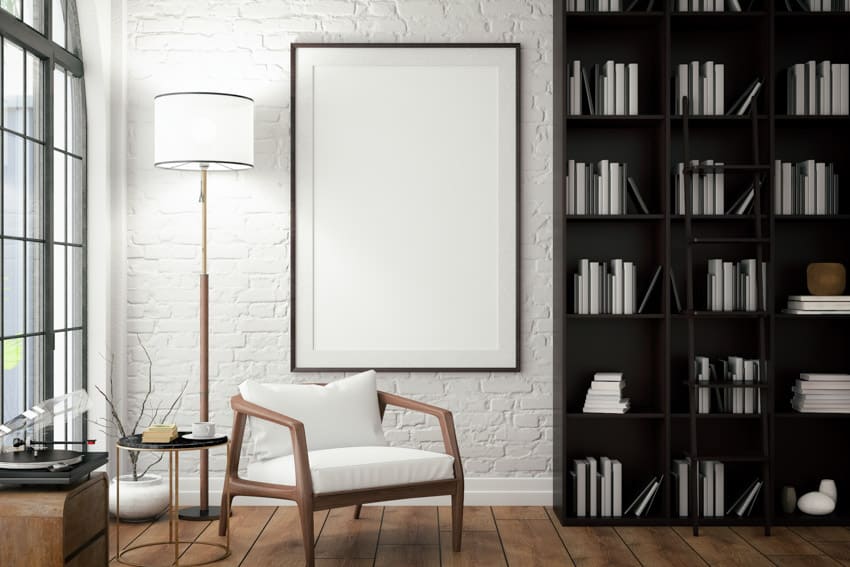
Now that you’ve looked at the different designs that would ideally fit your space, we can move on to the exciting part: the floor lamp’s style.
In a nutshell, a style is a combination of colors, materials, and textures, as well as furniture components, including patterns and line construction. It is what gives you the appearance you want.
Below are some of the different styles of floor lamps you can choose from:
Contemporary
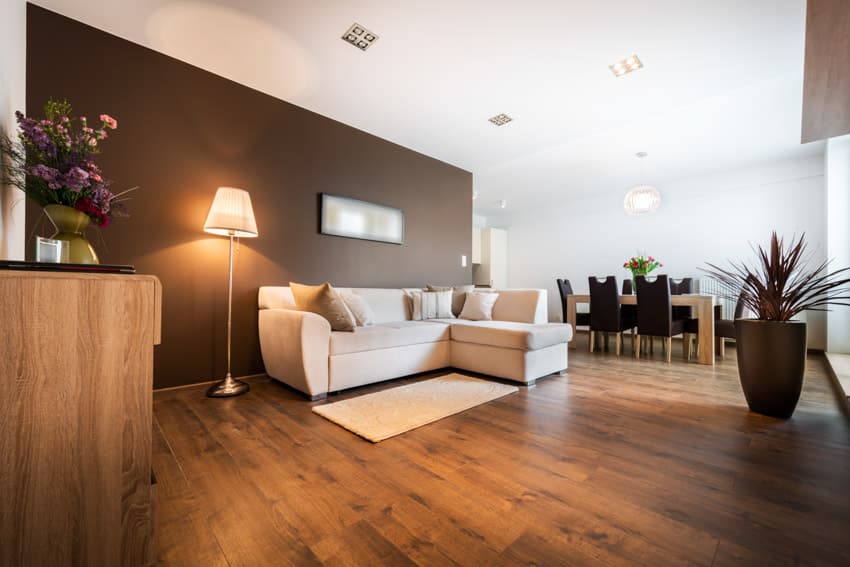
The word “contemporary” is frequently used as a general terminology to characterize styles from the later part of the twentieth century to the current day.
Minimalism, such as Mid-Century Modern and Scandinavian trends, is a trademark of contemporary style. Contemporary design lamps are typically made of neutral hues with sleek lines.
Modern
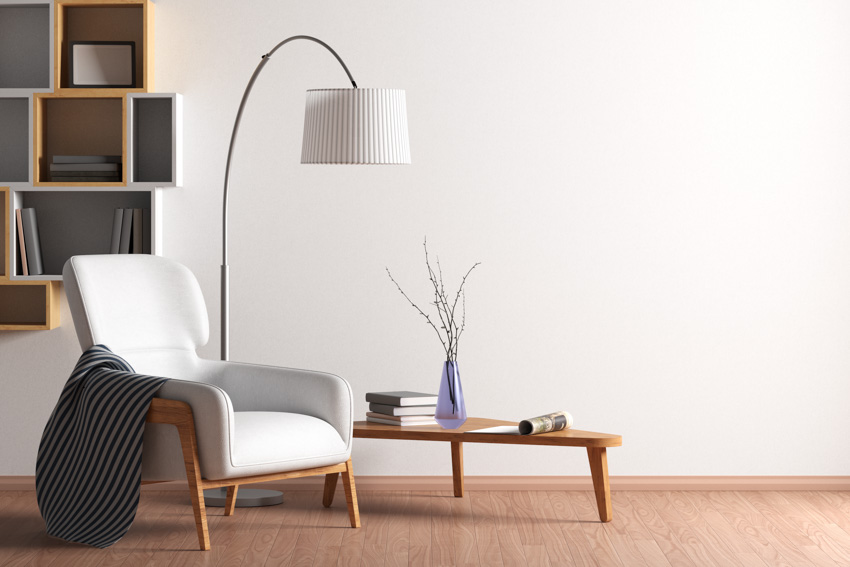
When applying a modern style, minimalist structure, sleek, bold outlines, and creative appearances are unquestionably favorites.
Modern floor lights will be more oriented with utility than with appearance. Reflective components, like steel or glass, are also popular in this floor lamp style and aesthetic.
Minimalist
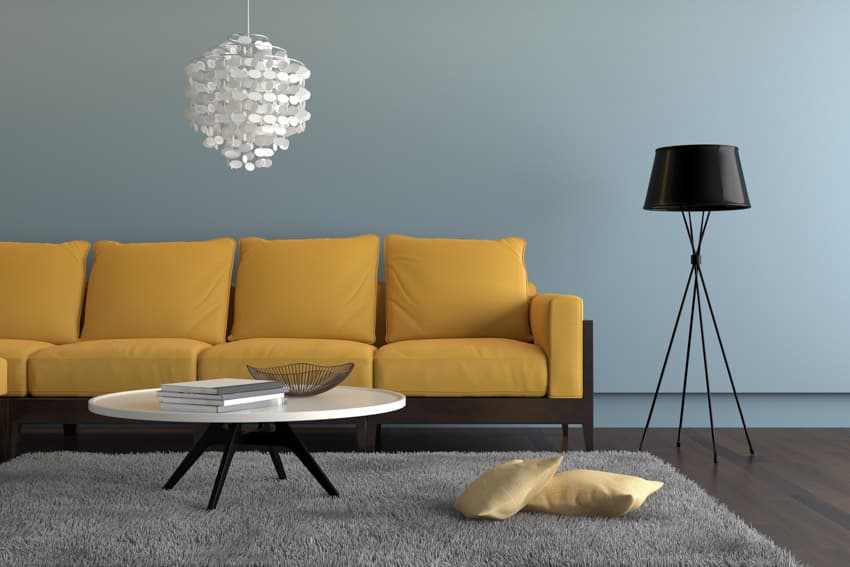
The minimalist style emphasizes the concept of “less is more.” We are sure you want high-quality and efficient items that come with neutral hues and a clean layout.
Minimal, clear spaces are essential in this design aesthetic, so select a slender floor lamp that does not overpower the area it is in.
Traditional
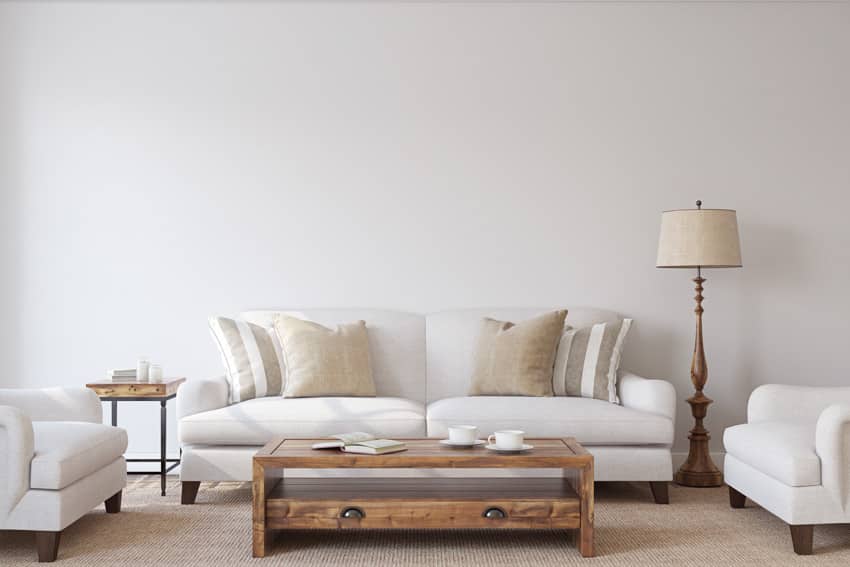
Traditional floor lamp types are typically associated with an earthy ambiance, subdued or soft hues, and an organized, antique appearance.
Furthermore, several features define various lamps with traditional styles, such as neat lines and an unobtrusive appearance.
Rustic
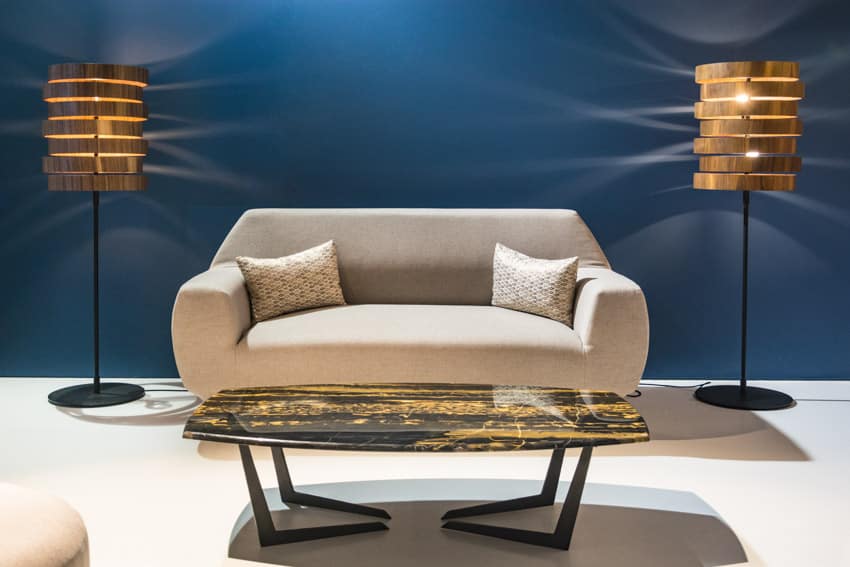
Natural materials, fabrics, and colors are fundamental to the rustic style. Hardwood or imitation wooden frames, poles, and rich brown, charcoal, or bronze are excellent choices for a rustic floor lamp.
Basic designs are also fantastic for the rustic style, and if you can obtain anything with an antique touch to it, then you have discovered a spectacular lamp for this style.
Shabby Chic
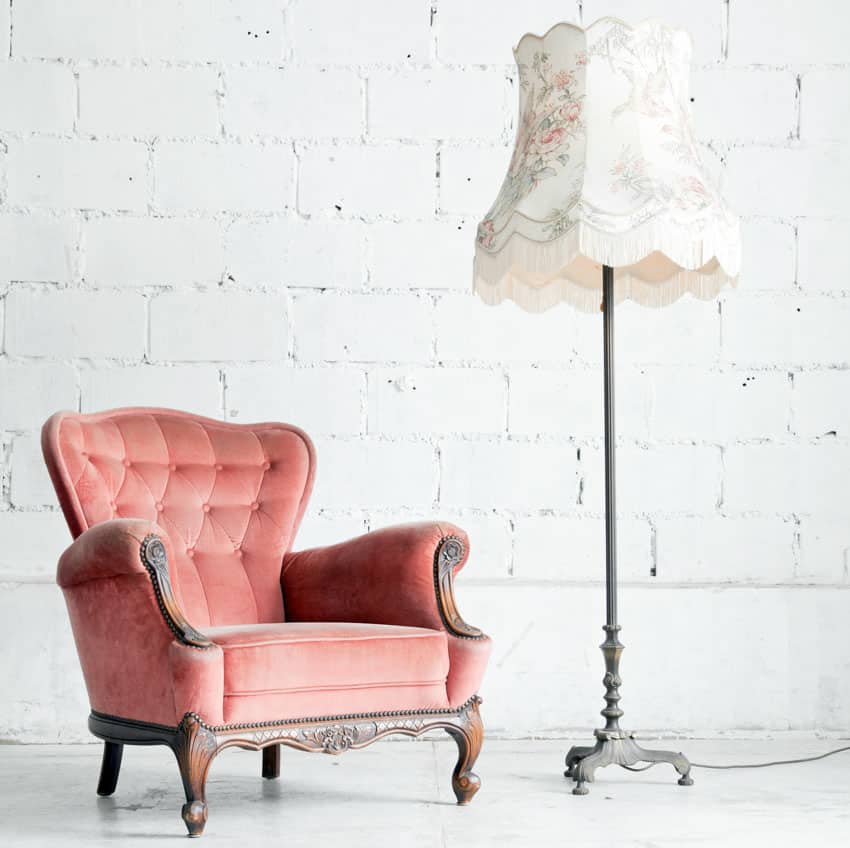
This stylish floor lamp style called the shabby chic, is a gorgeous decoration style that favors weathered items and old finds for a cozy, well-loved aesthetic.
Calming hues, fresh pieces combined with vintage pieces, and feminine embellishments are all must-haves for this style.
When shopping for a shabby chic floor lamp, search for one with an antiqued finish. This satisfies your need for both aged and classic appearances. Tassels, lace, ruffles, flowers, ribbons, and plumes are the perfect finishing touches for delicate pastel color palettes.
Boho Design
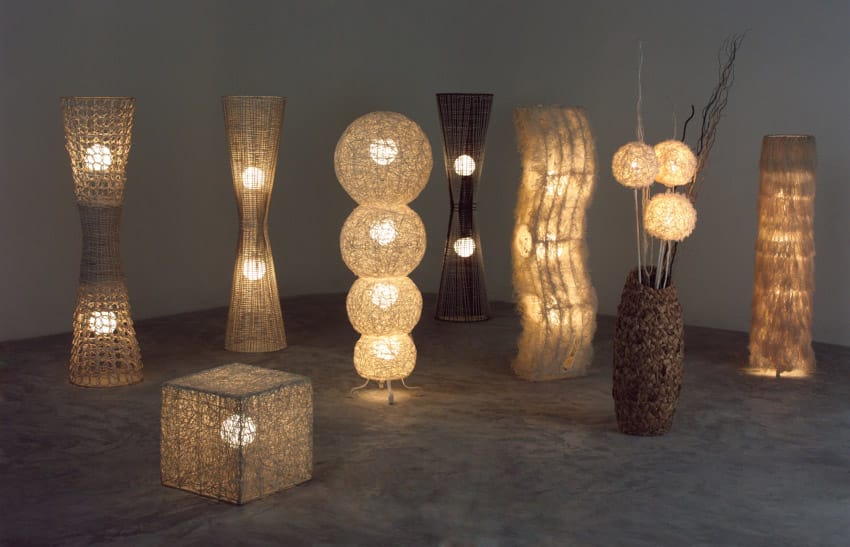
This extremely eye-catching floor lamp style known as the Boho design is as unique as the people who pioneered it. Boho design was established by travelers, performers, and authors using rich jewel tones and shimmers that contrasted out against earthy base hues.
Materials and motifs from all around the globe are commonplace in bohemian-styled homes.
Floor lamps that integrate these characteristics could make a tremendous impact. A lamp that employs Moroccan orbs in a tree lamp style could be a terrific choice for bohemian aesthetics.
Mid-Century Modern
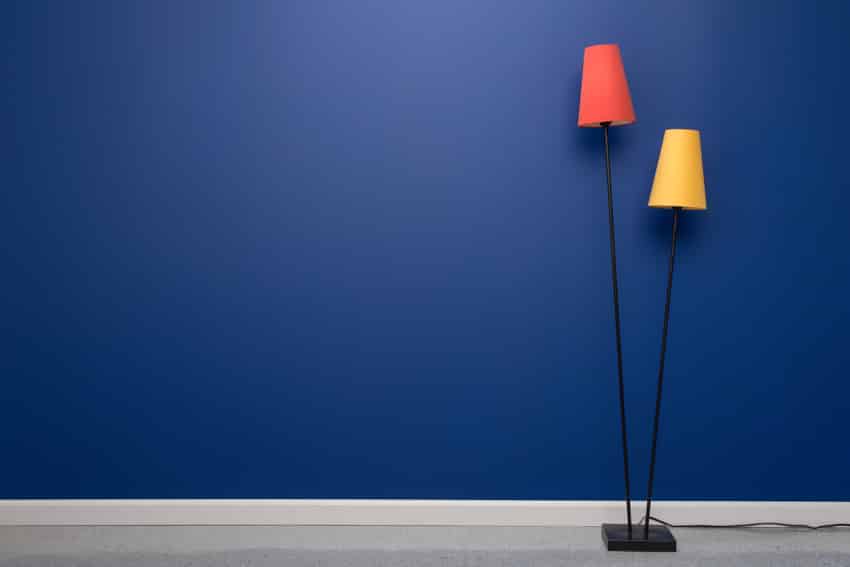
Mid-century modern style was popularized in the midpoint of the twentieth century. Mid-century modern styles are distinguished by multiple aspects including sleek lines, an uncomplicated aesthetic, and an emphasis on performance above fashion.
Industrial
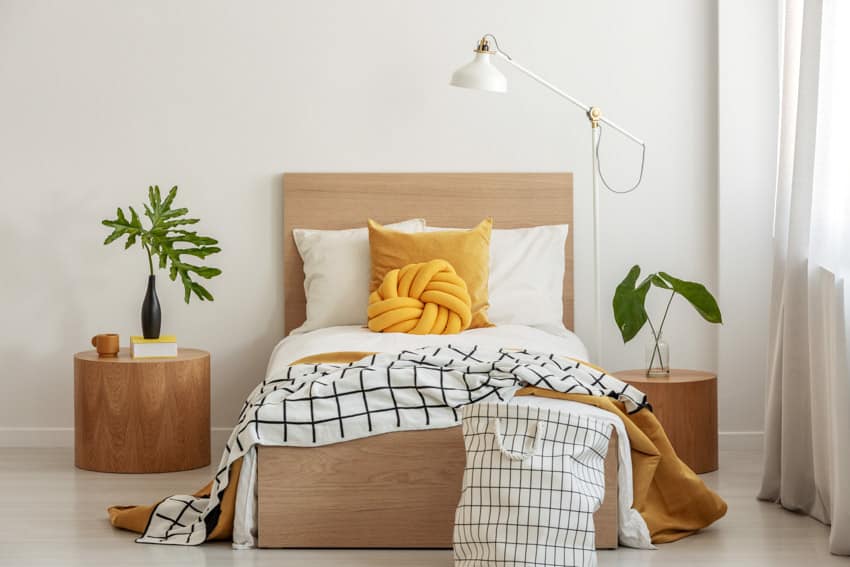
Features from historic industrial sites and warehouses are utilized in industrial styles. This style favors broad shades, cage types of lighting fixtures, pulleys, and cables. Incorporating various kinds of timber and metal around your space or property, as well as bare masonry or cement, is a perfect way to get an industrial-style floor lamp.
Generally, this type is composed of darkened bronze, a classic industrial finish, and has a pulley mechanism to produce the down-bridge light style. It also employs a large metal canopy, a nod to the ancient warehouses.
With an industrial style, you may see one constructed of cast iron or unpainted wood. A naked incandescent bulb is frequently a distinguishing component of the design.
How To Choose A Lamp
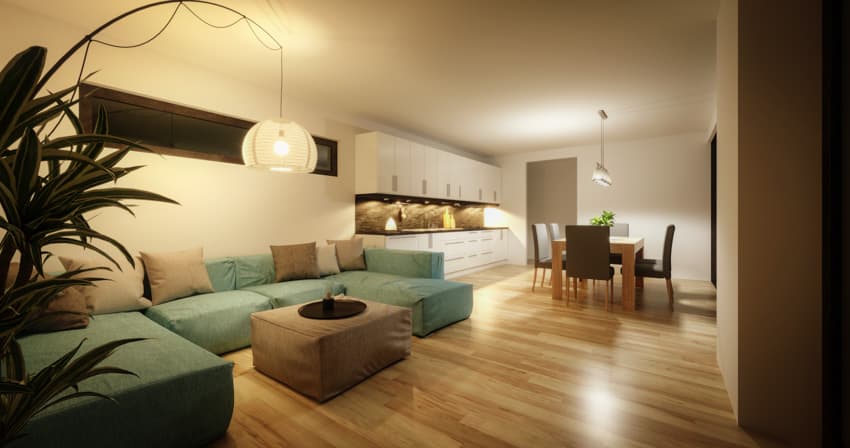
First, decide how tall you want your floor lamp to be. A conventional floor light will stand 1.5 to 1.8 meters tall. Nonetheless, some lamps are 2 to 2.4 meters tall, but they seem to be more challenging to locate and must be operated exclusively in big areas with high, cathedral, or vaulted ceilings.
In choosing a floor lamp, keep in mind exactly where it is to be located in your home. Floor lamps should harmonize with furnishings, and be care- fully scaled to space. – Planning Your Home Lighting, United States. Agricultural Research Service. Agricultural Engineering Research Division, 1968
However, here are the other important factors and principles that you have to take into consideration to help you find the best floor lamps that will perfectly suit your needs and preferences:
• Make use of the eye-level principle. To reduce glare, the base of the lamp’s shade must be at or slightly below the eye level of a seated individual.
• Use a higher freestanding light fixture to position it further away from the sitting area.
• The greater the area illuminated, the taller the floor light.
• Particularly tall lamps will seem out of place in a room with a low ceiling. Short lamps will seem out of place against a high ceiling.
• If the types of furniture styles in your home are low, a quite tall light source will seem out of sync. Similarly, large furniture overwhelms a small or slender fixture.
• There are lamps with adjustable altitudes that can address height issues and allow you to use it in a variety of situations.
• Determine how much capacity you have for the floor lamp you are planning to purchase.
• Traditional and torchiere lights may readily fit into a small area.
• Because of the horizontal expansion, overarched lights take up more area.
How High Should A Lamp Be?
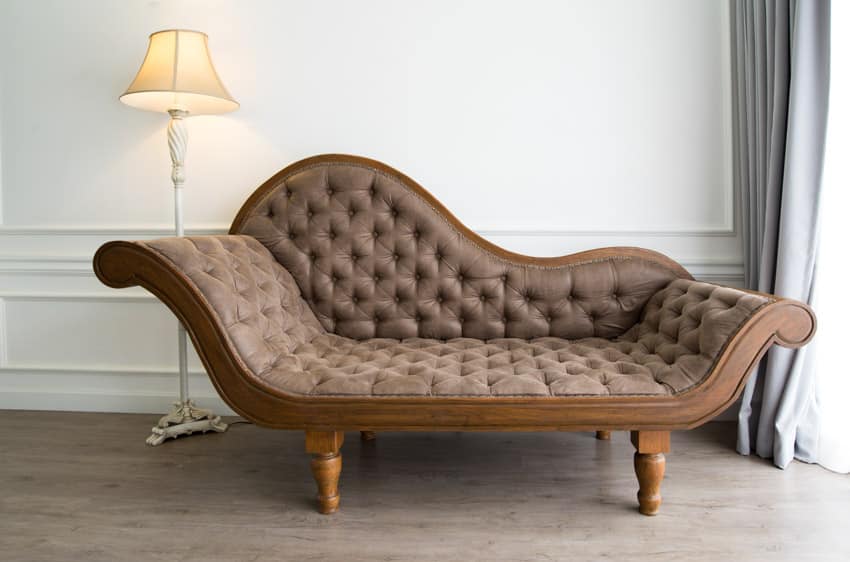
Once you have decided on the type and style of floor lamps you want, let us go into the specifics. Selecting an option that is tall enough is a crucial consideration. A 2-foot lamp on the floor and calling it a floor lamp is just not going to make it; it will be very awkward.
The height of the floor lamp is determined by what it is placed next to. While 58 to 64 inches (1.4 to 1.6 meters) is a decent overall light source height, you can check it against the sofa or chair where you keep it close.
When you sit on your sofa or chair, the light from your lamp must be at or just over eye level. This guarantees that the person seated has enough light to read, write, or do anything they want.
How Tall Should a Lamp Be Next to a Sofa?

If you wish to place your lamp next to a couch or sofa to generate ample lighting, the bottom of the shade must be at eye level when seated, meaning the lamp’s peak should be approximately 60 inches tall when measured from your floor.
Where Should a Lamp be Placed in a Room?
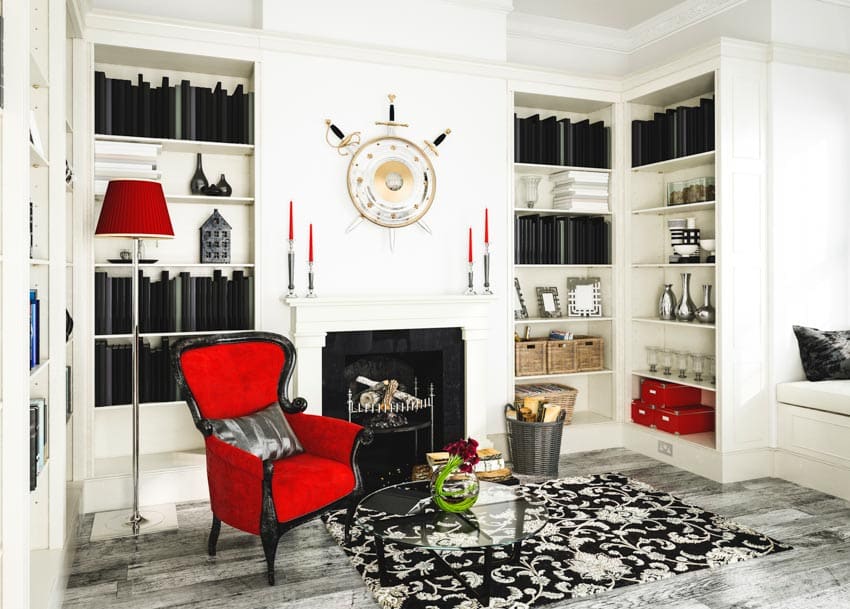
The most important aspect is to keep the lamp and its wire out of the path of any human movement.
It may appear nice, but if you stumble over it every moment you go into the room, you will now start to despise it, particularly if you or someone in your household gets injured as a result.
Then, think about where you want the lighting to be distributed. You may prefer it directed only on the reading chair, or you could prefer it as a broad light to keep on at night for anyone going to the kitchen.
You might even place a tree lamp in the center of the room and direct the various lights to each area that needs to be illuminated.
Nevertheless, to help you know where you should place floor lamps in a room, here are some tips on how you can direct the light:
• Place floor lamps at one or more sides of the room to direct light toward the center of the space. This is helpful if you have central ceiling lights, chandeliers, or ceiling fans.
• To create a focal point in the area, set lights on either side of a sofa or hearth. Use a dimmer switch so you can control brightness and save energy.
• To emphasize an artistic statement, place a freestanding light source alongside or beneath it.
• To decrease visual fatigue, place a light source next to a reading chair with the base of the shade at eye level.
• A floor lamp placed between two seats may provide a comfortable and welcoming environment for a conversation.
Regarding location, task lighting is self-explanatory; you set it alongside the workspace you want to be lit. On the other hand, Accent lights can be positioned wherever you believe they look best in your space.
But do not be too concerned about where you position it. The greatest thing about these floor lamps is how simply they can be moved and adjusted in a room.
How Many Lamps Should be in a Living Room?
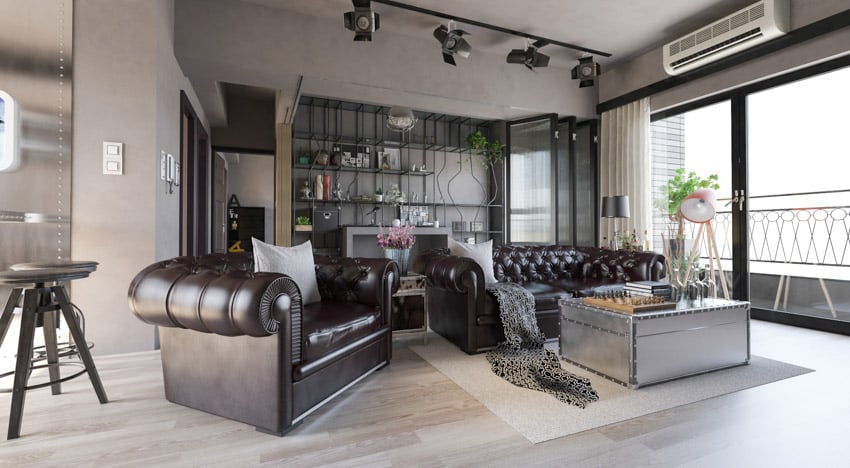
A basic general guideline is that a living room should have 4 light sources to generate proper illumination. However, it will mainly depend on how huge your living room is.
The maximum number of floor lamps in a living room is most probably 6 light sources. Anything more than 6 could create an uncomfortable brightness and glare that could hurt the eyes.
What Type of Lamp Gives the Most Light?
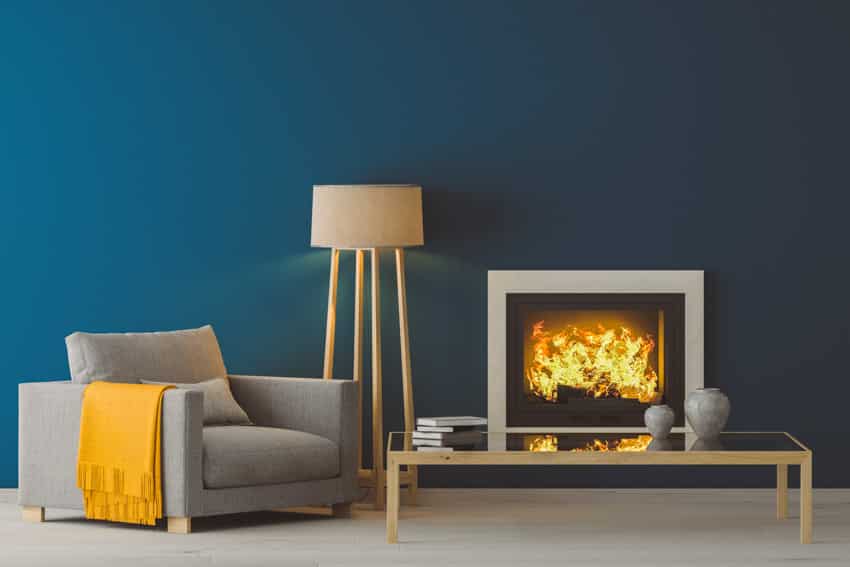
In terms of which type of floor lamp emits the most illumination, we consider a curved style, such as a standing light fixture with a swing-arm or overarching design, as the best option. You would want a source that casts light into your room from numerous angles.
Moreover, you want an option that has an excellent arc so you will receive your much-needed lighting for a specific activity. An open shade arc lamp is also a terrific way to add elegance to your lighting since you receive the full effect of the bulb inside your room.
However, the amount of light it provides will also depend on the wattage of the bulb used. The higher the wattage, the stronger the amount of light.
Best Type Of Lamp For Reading
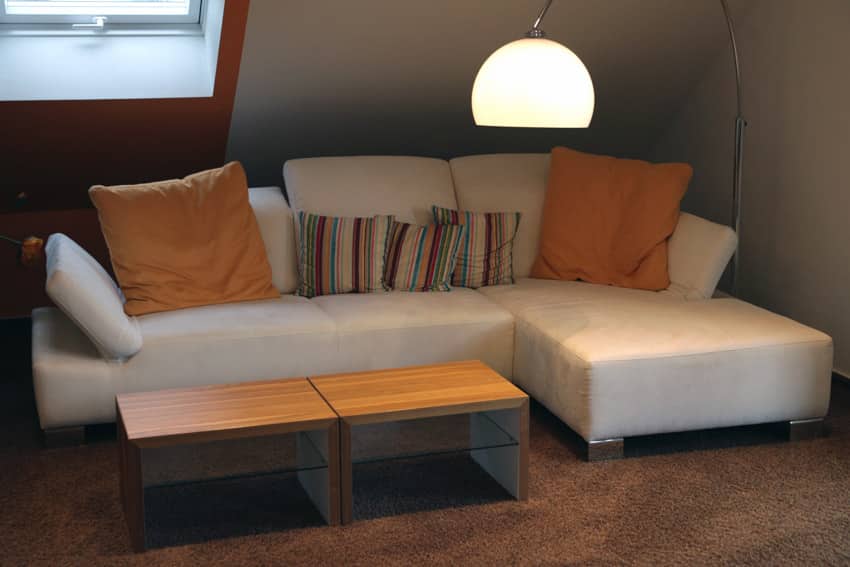
The best floor lamp for reading is a task light design. This style enables direct light into a specified location, such as a desk, computer workstation, or a reading chair.
Aside from its excellent ability to distribute light to a particular spot, the slim structure prevents it from becoming cumbersome and occupying so much floor space.
Rather, it can be conveniently slipped into a corner or behind a chair, making it an excellent choice for providing adequate lighting whenever you are reading.
See more related content in our article about how to clean lamp shades on this page.

